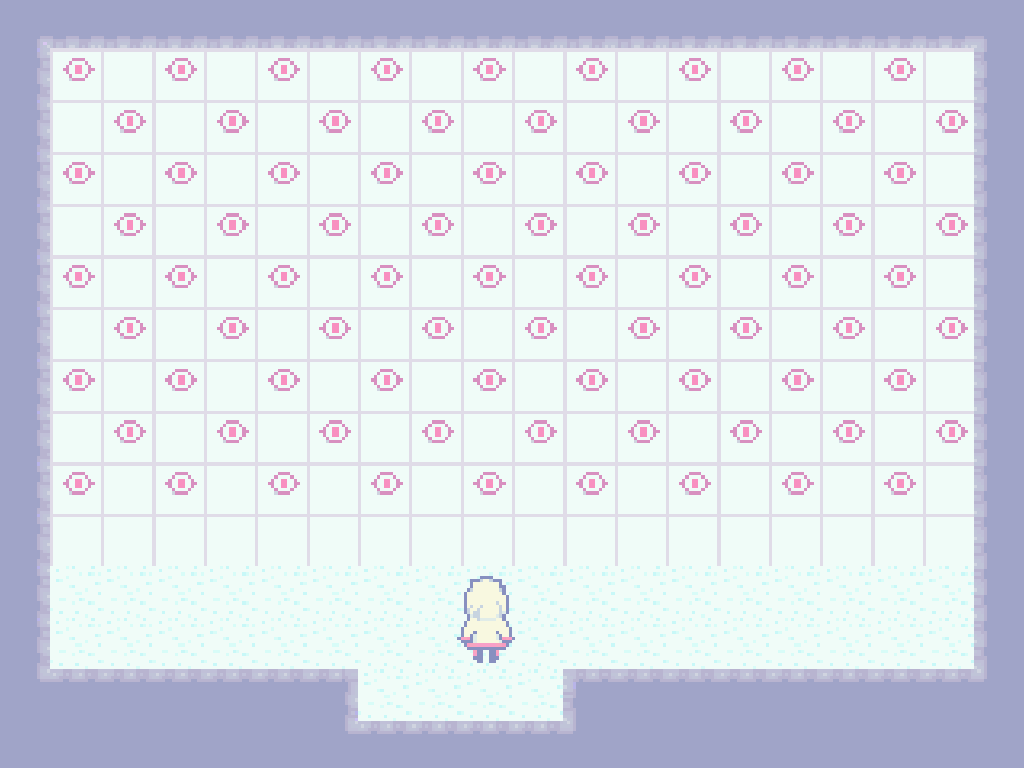“We are the wound in the Arab world … everyone watches what happens to us.” –Nader Said1
Being is an abstract adventure game that explores, from a future lens, the past and present of the Palestinian lived experience.2
In the story of Being, the Palestinian diaspora has extended to outer space as the Earth crumbles. You play as a Palestinian cadet, sent back down to Earth by the colony, on a mission to recover artifacts, memories, and messages from a region near an old border. Your ship crashes into a ruined complex of houses; you step out of your ship into an eerie, red-light room. There are three doors around you and a table in the middle of the room, on which appear to be a cassette player as well as a cassette tape—but parts of the ribbon seem to be cut out. Curious as to what it would say, you begin looking around to see if the tape pieces are nearby.
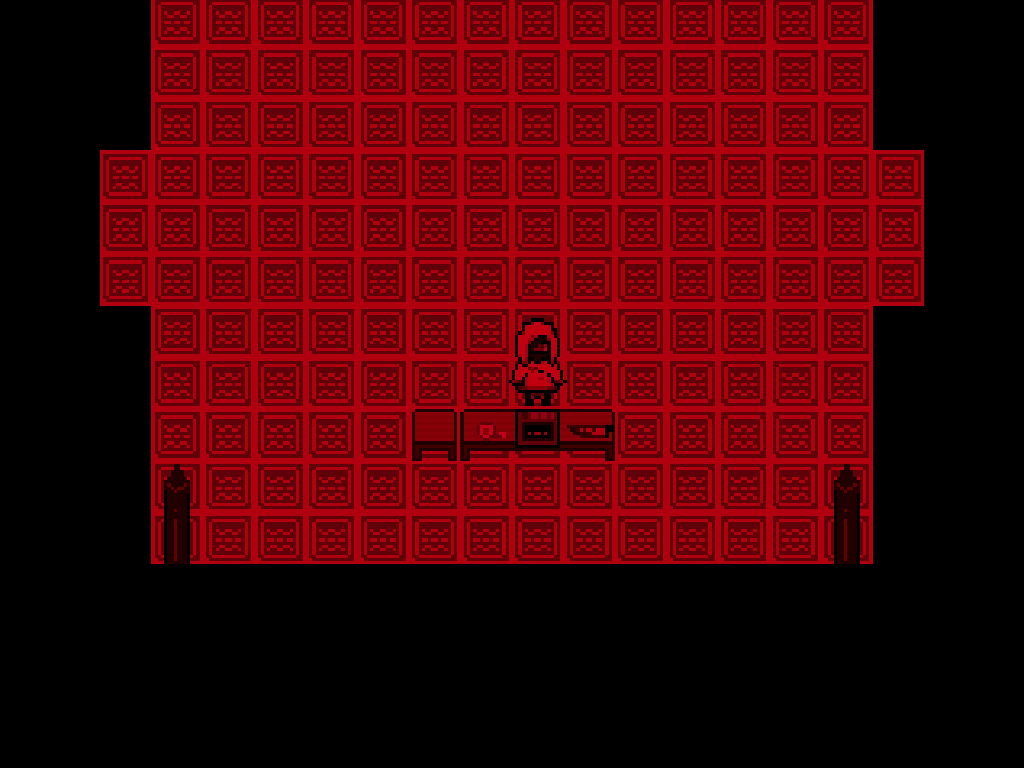
The first zone of the game focuses on memories of the past, both wistful and heartbreaking; you find a faded photograph of a family in Palestine, dating back to the mid-20th century. As you stare at the torn photo, you can’t help but feel relief how they look so happy regardless of all the destruction and violence around them. A voice rings out in the room, presumably a voice of the past… the voice encourages you to move forward and asks you to please never forget their sacrifices. After the voice fades, you see a piece of cassette ribbon in front of you; you take it and leave.
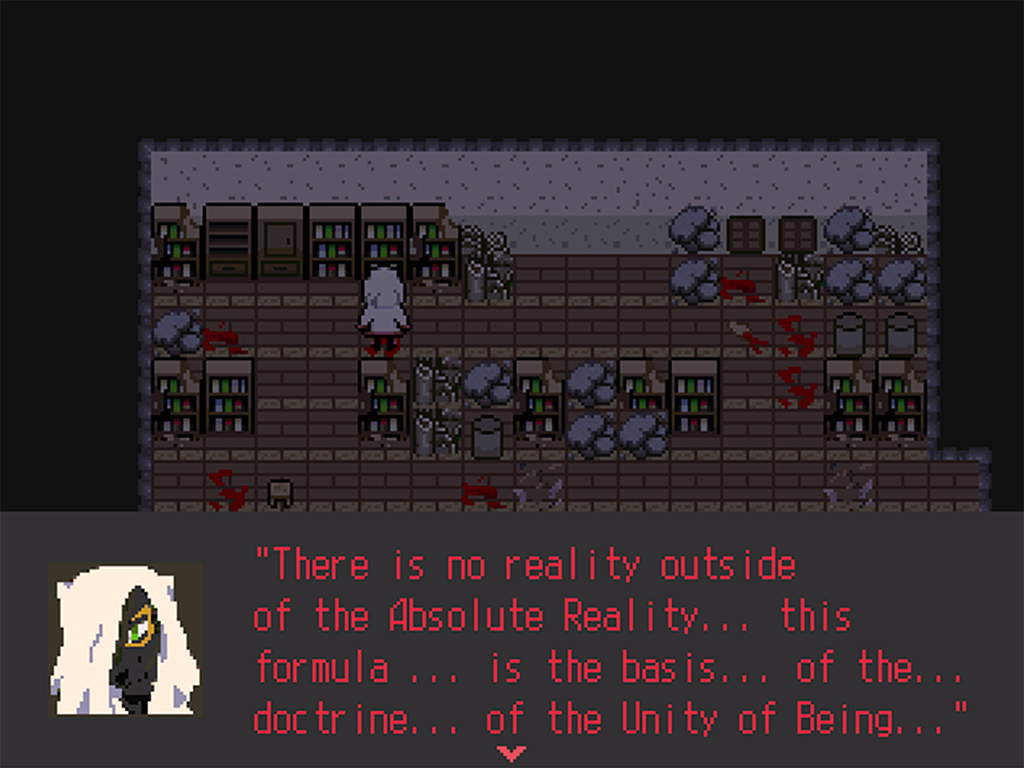
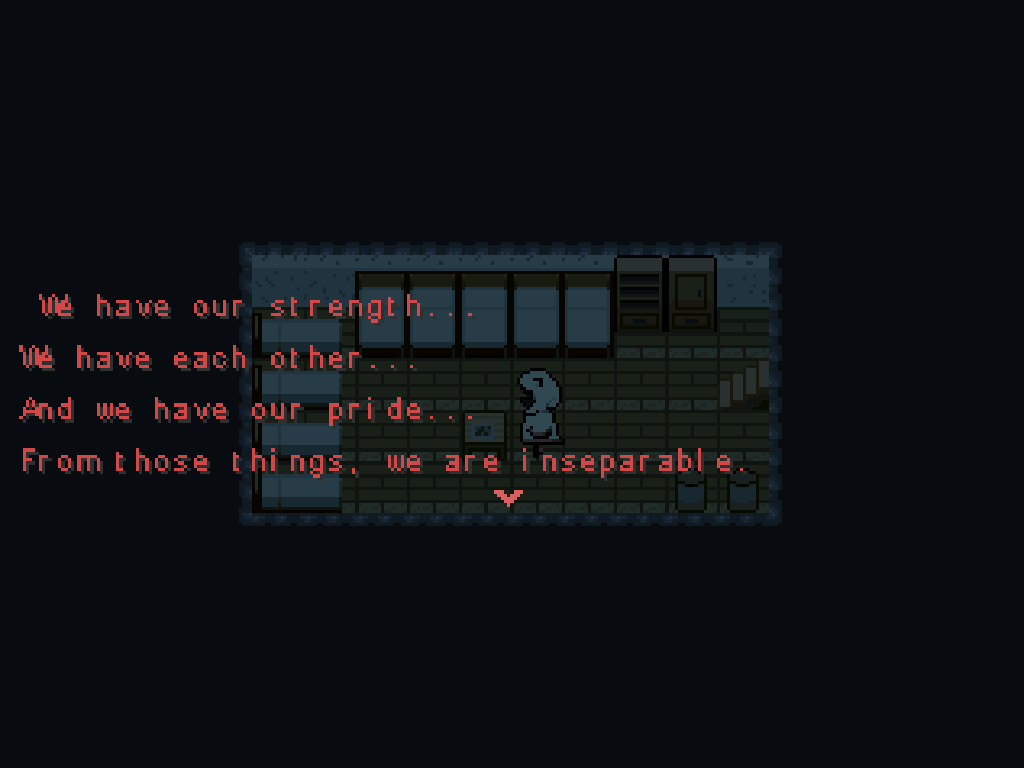
The second zone is a bright white room with art adorning the walls. The art is of Palestine—its people, its land, its history. Art viewers with blank expressions comment on the designs before them with disinterested smirks. You get the sense that they have no interest in helping anyone; they seem to delight in just observing from a distance and commenting without being affected by anything. You don’t want to stay in this room. You grab the fragment of tape that you see in
front of you and leave quickly.
The third and last zone brings you to a lush, green space that is also dimly-light; it seems to go on forever. All you can do is walk forward—but as you go on in this endless space, walking seems harder and harder… your legs start to give out, and you move slower and slower. When will this slog end? When will the pain, the suffering, finally halt? When will you be able to see the light? These questions race through your mind as you slow to a crawl; luckily, just before you give out for good, the last fragment of the tape is before you. When you grab it, a light shines around you and you are returned to the main room.
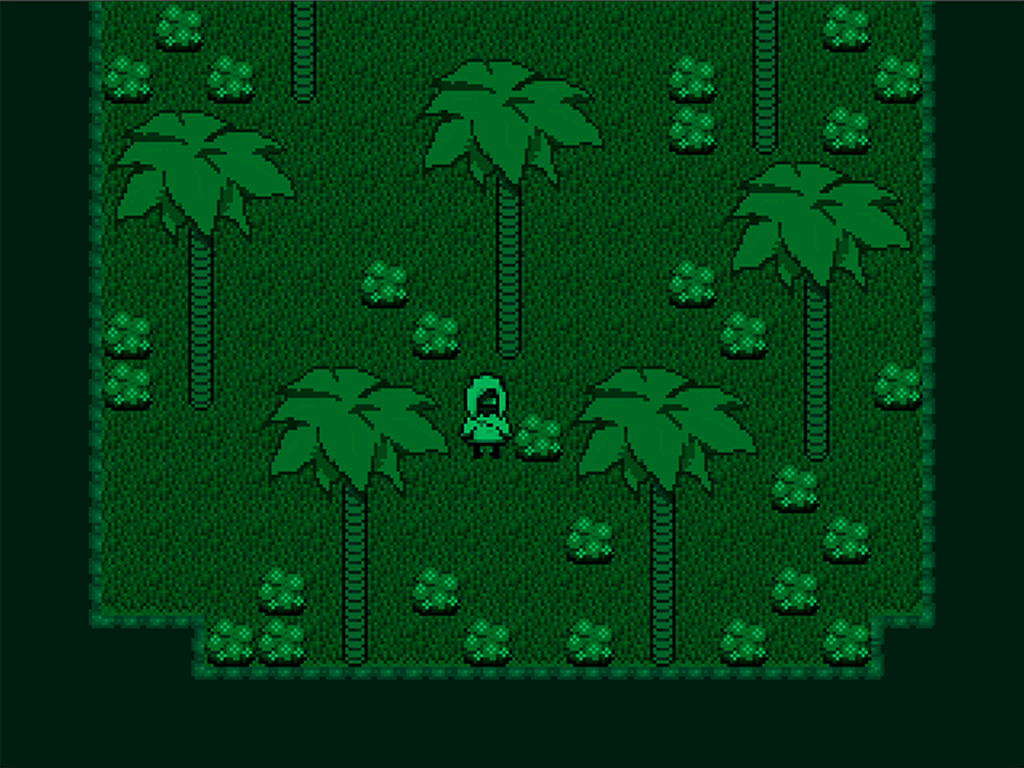
You are still sore from the climb, not to mention mentally exhausted, but you hold the complete cassette tape ribbon. You insert the tape into the cassette player, and for a few tense moments, silence weighs in the air. A voice finally crackles to life:
sometimes
we are called
al-a’iduun
translated
in many ways
it means,
“the returnees”
or
“those who will return”
but the one
that resonates
the most
with me
is
“those who go back”
The voice continues on. You listen raptly.
The words echo in your ears far after the tape runs out.
“We are
those
who
go
Back.
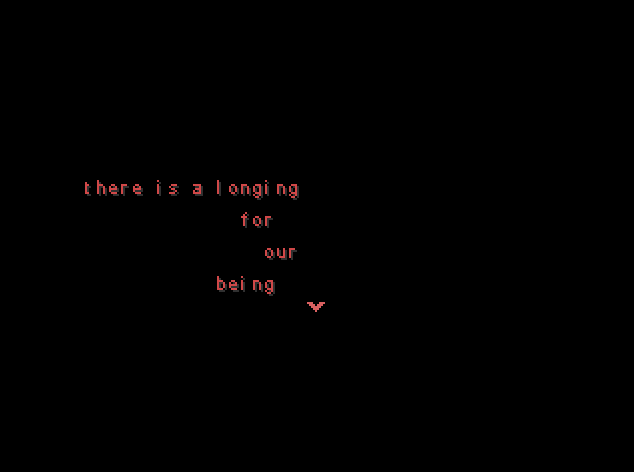
View and play being on itch.io
- Quoted in Robin B. Wright, Dreams and Shadows: The Future of the Middle East (London: Penguin, 2009): 21. ↩
- Being was a part of the Art Palestine International x Babycastles exhibition, Over the Rainbow, which showcased Palestinian art and games resonating out of the unique and valuable lived experiences of Palestinians—both in the region and the diaspora. Over the Rainbow ran during Spring 2017. https://babycastles.com/Over-the-Rainbow. ↩

